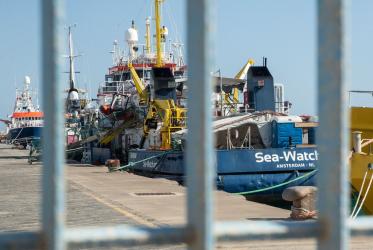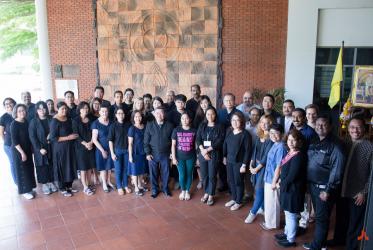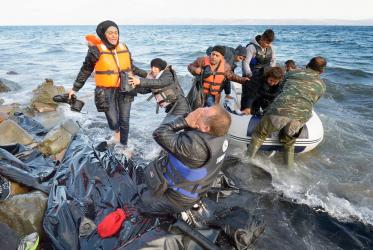Displaying 1 - 20 of 35
‘European humanitarian corridor’ proposed
02 May 2019
Christian communicators work to counter hate speech against refugees
10 December 2018
World conference on xenophobia, racism, and populist nationalism in the context of global migration
18 - 20 September 2018
Ergife Palace Hotel, via Aurelia 619, Rome, Italy
WCC, Vatican confront xenophobia, populism and racism
16 December 2017
Conference explores Christian approach to borders
05 October 2017
"I hit the ground running": Katalina Tahaafe-Williams
16 February 2016














